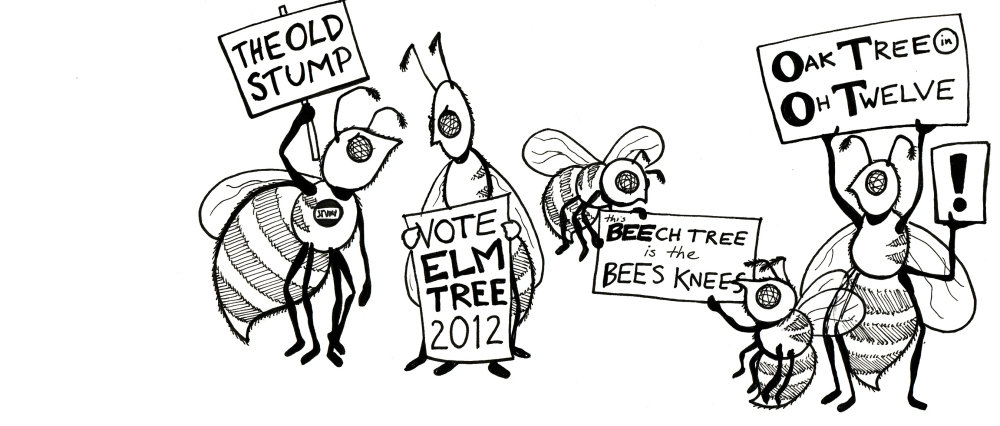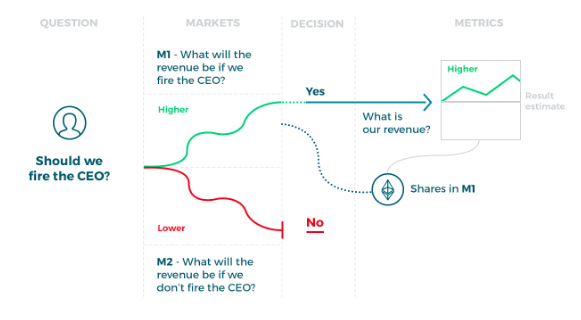Anybody who has thought about democracy even one level deep knows that a decision taken by the majority vote isn’t always a good decision. For issues of importance, such as Britain’s participation in EU or global warming, most people do not have the necessary background knowledge or motivation to cast an informed vote.
Any scientist can tell you that just because you had snow in your area, it doesn’t mean global warming is false. Most people care only about immediate and local issues, and good policies usually require second or third order analysis that’s hard to do and even harder to explain.
Democracy feels like an awkward compromise. But, we’re so used to majority vote schemes that it’s hard to see whether there could be any system that improves upon democracy. So this week, I spent a majority of my time reading about flaws of democracy and proposals for improving it. Here are my recommendations of good resources on this topic.
Issues with democracy
1/ Start by reading about this funny story. UK’s Natural Environment Research Council’s asked the Internet to propose and vote on names for their new boat. A BBC commentator joked about the boat being called “Boaty McBoatface” and the name caught on and won the contest.

In UK parliament, there was a big debate on whether to go with a majority vote (33% voted for Boaty McBoatface) or go with a name that has historical significance (3% voted it to be named after Sir David Attenborough, the presenter of BBC series Life). Of course, in this context, the situation is hilarious. But remember that the same process elected Donald Trump in US and booted UK out of European Union.
2/ The biggest issue with democracy is tyranny of the majority where the majority group squeezes minorities. This sucks if you’re a part of a minority and you have to fight for your fundamental rights. It’s absurd how the LGBT community has to get an agreement from heterosexuals to marry amongst themselves.
3/ Even if we assume that all citizens are well informed and are ethical, there’s still one unavoidable flaw in voting systems. It’s called Arrow’s impossibility theorem and it states that all majority ranking voting systems (where you have to choose or rank between alternatives such as your favorite candidates) have a logical flaw wherein people could end up voting that they like A over B, B over C, and C over A. If this is the case, can you trust the majority vote?
Yes, it’s a really weird concept. So, I recommend watching this video by @pbsinfinite.
4/ There are incremental improvements on democracy such as delegative democracy where you delegate your vote to someone else. Then there’s direct democracy where instead of electing representatives, you cast votes on policies directly. Of course, we can’t forget democracy where only one person’s vote counts: dictatorship!
5/ I was surprised to learn that the citizens of the world’s largest democracy (India) prefer a dictatorship. More than half of those surveyed by @PewResearch said autocracy or military rule will be very good for the nation.
So is democracy really what Churchchill described it as:
Democracy is the worst form of government, except for all the others?
Let’s find out!
Quadratic voting: Allow people to buy votes
6/ Quadratic voting is a very intriguing idea: people can cast as many votes as they want but they have to pay money equal to square of votes they cast. After voting, the collected money is redistributed equally to everyone who voted. The original paper was written by Stephen Lalley and Glen Weyl.
7/ The argument of allowing people to buy votes sounds horrible in the gut but if you inspect it closely, it makes sense. For a typical issue, most people have no preference yet their vote is given the same weight as someone for whom that issue is a life-or-death matter. Why give equal votes to both?

8/ In quadratic voting, people cannot “cheat” because economic analysis of this scheme shows that marginal benefit of extra votes is equal to marginal cost. So people will buy votes to express their true preference and nobody can simply get more benefit than the benefit they’ll get by getting a favorable policy passed. Plus, even losers get compensated by with money.
9/ The original paper on quadratic voting is short on details, so I highly recommend reading this follow up this paper by Eric Posner and Glen Weyl (@glenweyl).
10/ Beyond political governance, quadratic voting also has applications in corporate governance and bankruptcy.
Overall, quadratic voting is a really intriguing idea.
Futarchy: allow people to bet and profit from good policies
11/ Futarchy is a form of governance system where citizens participate in prediction markets, betting on whether a proposed policy will improve (previously agreed) well being or not. It was proposed by @RobinHanson. Start by reading his own introductory essay on the topic.
12/ @RobinHason argues that people will usually agree on what metrics constitute progress (GDP growth, happiness, well being) but they don’t agree on how to achieve pursue it (should we build more factories or plant more trees?). In Futarchy, very much like stock markets, people buy or sell policies on prediction markets. This incentivizes them to seek out information that others don’t have, so they can profit from information difference. This extra information is incorporated into the price which is visible to everyone, so the entire community benefits.
13/ How prediction markets aggregate information is very interesting. I found a really good explanation of it in a crypto project called @Truthcoin. I HIGHLY recommend reading this essay by Paul (the founder of @Truthcoin) where he explains how (and why) prediction markets work.

14/ Once you have a good grip on the power of prediction markets, I encourage you to read the original paper by @RobinHanson titled ‘Shall We Vote on Values, But Bet on Beliefs?‘ (it’s a really well-written paper!)
15/ Futarchy is perhaps the favorite form of governance for crypto projects (especially for Distributed Autonomous Organizations – entities that have no leader!). Here’s an introduction to Futarchy by @Ethereum’s founder in @VitalikButerin.
16/ One open question is the validity of the assumption in Futarchy that people share common metrics of progress. I’m not entirely confident of that assumption. Perhaps there’s a way to combine quadratic voting with futarchy?.
Issue based direct democracy: good policies as knowledge creation
17/ The reason I went into the rabbit hole of governance systems is because I stumbled upon the project @VoteFlux by Max Kaye. Read his article for an introduction.
18/ Max has proposed a new form of governance system that he calls Issue Based Direct Democracy (IBDD). It’s inspired by his (and my) favorite book: The Beginning of Infinity by David Deutsch. The key idea is that all progress is due to new knowledge and knowledge is essentially good explanations.
19/ In IBBD, policies take the shape of scientific experiments – make conjectures of policies, criticize openly and stop believing in policy when evidence mounts against it. Just like Quadratic Voting, in IBBD, people can vote on issues or abstain to collect enough political capital to double down later on issues important to them.
20/ IBBD combines many great ideas from a variety of governance systems and I HIGHLY recommend watching this one hour video by Max.
21/ With his @VoteFlux project, he’s keen on hacking existing democracy by getting a representative elected in the Australian Parliament who will give up on his/her autonomy and decide according to IBBD. How cool is that?
I really like the idea of working through existing systems to improve them. Hopefully, these ideas can help us improve democracy without shedding blood. But as the history has shown, people in power never give up power willingly. So ¯\_(ツ)_/¯
What were your favorite links?
What articles that you read this week expanded your worldview / mental models?
I'll RT your recommendations.
— Paras Chopra (@paraschopra) February 11, 2018
In the twitter thread above, you can check what links other people recommended (+ recommend your links!)
Join 200k followers
Follow @paraschopra